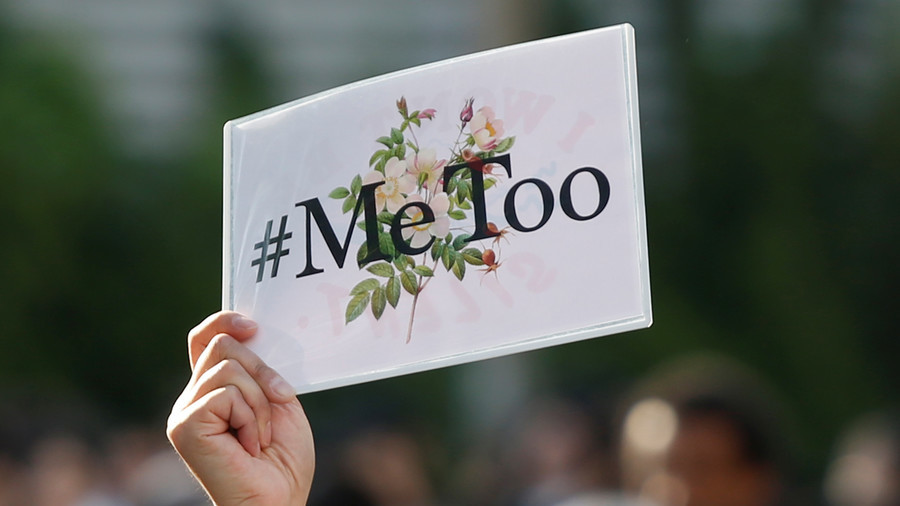The unsparing ferocity with which #MeToo Movement is catching powerful and popular figures from cinema, media and music world in its octopus grip, it is hard to assume that this social media generated frenzy will not continue for another weeks and months to come. Instead, it shows that the movement, which took the world by its storm after Alyssa Milano, an American actress, using ‘Me Too’ hashtag on twitter asked women in October 2017 to come forward to speak about sexual harassment and sexual assault, has just begun to roll.
In India, the latest popular face to fall prey to ‘Me Too’ hashtag is Bollywood composer and singer Anu Malik who has been removed from the television reality show ‘Indian Idol’ as its judge.
He is among more than a dozen influential figures from Bollywood and media who have been since named and shamed by their victims. Whatever one may argue about the movement, it is going to have a consequential effect on social behavior of male towards their female counterparts.
In a way, it has been compared with another social media generated movement ‘Arab Spring’ which shook the international community nearly eight years ago. But while Arab Spring has been thorough and thorough revolutionary in nature, #Me Too is societal in nature and hits out at the morality of those who masquerade as champion of gender equality and liberalism. However, Arab Spring and #MeToo share a commonality in their core values like equality and democracy. Both stress for social cohesiveness also. Tunisia, a North African country was the first to trigger Arab Spring moment after a fruit seller Mohamed Bouazizi immolated himself in protest against repeated harassment from authorities on December 17, 2010.
This desperate act spurred a wave of self-immolations and mass street protests, forcing Tunisia’s longtime ruler Zine al-Abidine Ben Ali to flee the country. Egypt was the next country to be caught under the vortex of Arab Spring. For eighteen days, Egypt witnessed only gun battle and blood bath on the streets of Cairo. As many as 846 people were killed during the uprising which ultimately forced President Hosni Mubarak who was ruling the country for three decades to resign in February 2011. And then it travelled to Libya and other countries of the West Asian region. The government being run by dictator Muammar Gaddafi for 42 years was toppled in Libya. While on the run, he was brutally killed by armed rebel in August 2011. Yemen and Syria are still grappling with protests and armed rebellion. Bahrain, Morocco, Algeria, Jordan, Oman and Kuwait have though controlled the raising fire of Arab Spring, they are not out of bound by discontents and occasional protests.
Did KWAN founder Anirban Blah stage his own suicide?
Except for one or two countries of the region, the movement has still has a ripple effect on Arab nations where elite rulers, despite restricting freedom of expression through forced action and pushing hundreds of politicians, activists and journalists into jails, are not able to contain the fire of disapproval. Saudi Arabia is a case in point here. On October 2, Jamal Khashoggi, a Washington Post journalist was killed by a team of Saudi agents inside the Turkey-based consulate building of Saudi Arabia because he was a trenchant critic of royal family of the world’s largest oil producing country. The incident has sparked widespread condemnation of Saudi Arabia’s ruling class from across the world. Despite numerous attempts to shift blame on “rogue elements” for the murder of Khashoggi, Riyadh is not able to buy peace from the US or the European Union which suspect 32-year-old Crown Prince Mohammed Bin Salman’s hand behind the killing of the journalist. The incident is not outside the purview of Arab Spring. In fact, logical end of Arab Spring lies in change in political structure which may not be resistible for Riyadh in coming days.
We’ve to listen, believe, let justice prevail: Sushmita Sen
Nonetheless, both the movements have hit the world hard. Even China which normally impedes flow of public-centric discourses inside the country, has failed to curb widening footprint of #Me Too movement on its soil. Allegations have come thick and fast of sexual harassment of students in China’s Peking University, Sun Yat-sen University, Renmin University and Beihang University by teachers. Last week a university in northeast China sacked a professor after a female student accused him online of sexual harassment. US President Donald Trump is also facing allegations of sexual harassment and # Me Too movement has exacerbated it. Question is not whether male dominated society will change its behaviour under the impact of the movement or not, question is why female will not have easy way out of legal hurdles that they may face from accused after they embroil them under sexual harassment charge.
Disclaimer: The opinions expressed in this article are the personal opinions of the author. The facts and opinions appearing in the article do not reflect the views of NEWSD and NEWSD does not assume any responsibility or liability for the same.


















